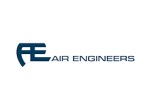What’s Involved in Furnace Repair?
Your furnace is made up of many critical parts—igniters, flame sensors, blowers, heat exchangers—and if any one of them fails, the whole system can suffer. Our furnace repair service includes a full diagnostic assessment, targeted repairs, and replacement of faulty components using high-quality parts. We work on all major brands and types of systems, including gas, electric, and high-efficiency furnaces.
Signs you might need furnace repair include unusual smells, loud noises, uneven heating, frequent cycling, or a sudden spike in your energy bill. Ignoring these symptoms can lead to bigger (and more expensive) problems, or even dangerous situations like carbon monoxide leaks. Our team will walk you through the issue and recommend the best course of action, whether it’s a simple fix or a potential replacement. We also offer seasonal HVAC maintenance to prevent surprise breakdowns in the middle of winter.
Furnace Fixes, Explained
When your heating system acts up, it’s easy to feel unsure about what’s happening or what to do next. That’s why we’ve gathered some of the most common furnace repair questions homeowners ask online. These quick answers can help you understand the problem and determine when it’s time to call in the pros.
A slight burning smell when you first turn on your furnace is common—it’s usually dust burning off the heat exchanger. However, strong or persistent odors could signal issues like a clogged filter, overheating, or even a gas leak. A musty smell may indicate mold in the ducts. If the smell doesn’t go away quickly or seems unusual, it’s best to shut off the unit and call a professional.
Rattling, banging, screeching, or popping sounds often point to mechanical problems like a loose blower wheel, worn bearings, or ignition issues. These noises shouldn’t be ignored, as they can lead to more serious damage over time.
In some cases, it could also mean your furnace is struggling to operate safely. A professional inspection can pinpoint the source and recommend the right repair.
Most furnaces last between 15 and 20 years with proper maintenance. Factors like usage, the quality of the unit, and how well it’s been serviced over the years can all affect its lifespan. Regular tune-ups can help you get the most out of your system. If your furnace is nearing the end of its life and breaking down often, it may be time to start planning for a replacement.
DIY furnace repairs can be dangerous and may void your warranty. Furnaces involve electrical components, gas lines, and safety sensors that require expert knowledge to diagnose and repair. Even small mistakes can lead to safety risks or system damage. For your safety and your furnace’s longevity, it’s best to leave repairs to licensed professionals.
Short cycling—when your furnace turns on and off frequently—can be caused by an overheating unit, dirty filters, a malfunctioning thermostat, or airflow restrictions. This not only affects your comfort but also puts extra strain on the system, leading to more wear and tear.
If your furnace isn’t completing full heating cycles, it needs attention before it causes long-term damage. A quick diagnostic check can reveal what’s triggering the problem.
Get Heating Help You Can Trust
A broken furnace in the middle of winter isn’t just uncomfortable—it can be dangerous. If you’re dealing with uneven heating, strange noises, or no heat at all, don’t wait to get help. Our furnace repair technicians respond quickly, identify the problem, and get your system back on track, safely and efficiently.
We don’t believe in temporary fixes. We believe in doing the job right, treating your home with respect, and earning your trust. Book your service today and let’s get your home warm again.






